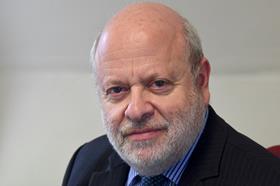There have been significant changes for the legal profession after the dreadful street violence of recent days.

Some are becoming apparent only now. I will deal with three of them, beginning with the least.
Some – maybe many - respected members of Legal Twitter have left the platform out of disgust at the role its owner has played in amplifying misinformation and incitement to violence. One of my main sources of legal information has left. As a result, the platform will itself be further weakened, since – as happened during the riots – people will ask questions like why some defendants have their cases dealt with in days and others have to wait months and years, and there will no longer be as many good lawyers to point out how our criminal justice system works. Soon there may be no good lawyers left on the platform. Ignorance and bad actors will flourish.
A look at an alternative like BlueSky sees lawyers gather like refugees after a difficult journey, trying to find each other and build new networks and followings.
A much more important change has been the renewed focus on our legal system, and its current dire state. We have always been a second class service, well behind the National Health Service. Of course, a health service is vital, but these last few days have shown that, if there is no framework of law and its enforcement, the health service would not be able to function, either.
The role of lawyers themselves has also been a feature. First, there were the immigration lawyers who were on a target list circulated on social media. Many ordinary citizens came out onto the streets to show solidarity and protect them on the day of the purported actions. The Law Society commendably contacted those under threat to advise them on how to stay safe.
Second, there was the need for criminal defence lawyers to step up in the national interest, along with the police, judges and prosecutors. The government’s strategy to fight the riots depended on the willingness of defence solicitors.
This gave the Criminal Law Solicitors Association an opportunity to highlight a few hard facts to the government in relation to the floated idea of 24 hour courts (as ran during the London riots of 2011):
‘ … this is not 2011. Since 2011 more than a third of criminal legal aid solicitors have left the profession and a third of firms have closed. Legal Aid rates (even with the CLAIR increase) have fallen by more than 30% in real terms at a time when the cost of living, and the costs of running a business have ballooned. Firms have neither the capacity nor the resources to help staff 24-hour court sessions, even in the short term. They cannot afford to operate in shift patterns which means solicitors to work 24 hours, on top of their 24-hour police station duty … Our members are an aging profession, many already working every hour under the sun.’
It is not a feasible strategy for the government to be dependent, on the one hand, on criminal defence solicitors but, on the other, to ignore their interests. The government recently announced that public sector workers like teachers and doctors will receive above-inflation pay rises worth £9.4 billion overall – yet there is still no news on the CLAIR settlement on criminal legal aid rates, referred to above, despite the Law Society winning a court case months ago which obliged the government to reconsider the previously awarded amount. Following the riots, this is scarcely credible.
Of course, it is a question of priorities. Universities and local authorities are facing bankruptcy, the levelling-up which some feel may have been a contributory factor to the unrest, and a dozen other issues facing the country, pose grave challenges. But the violence of the riots, and the government’s response – so far successful – of pushing the defendants quickly through the courts with maximum publicity, has stabilised a situation which, had it grown out of control, would have dwarfed all other problems. The legal system should, therefore, move up the list of priorities: that is a major lesson.
Finally, there is the shock of solicitors being a target of riots at all. I am perfectly aware of the over-quoted Shakespearean line: ‘The first thing we do, let's kill all the lawyers’ (Henry Vl Part 2). But to my knowledge – historians, correct me if I am wrong – this is the first time in actual British history (as opposed to the Bard’s imagining of it) that solicitors, or any lawyers, have been listed by potential rioters as targets. We know some of the probable history, from the poisonous rhetoric of the previous government and of some newspapers. But it is still profoundly wrong that some of our profession find themselves in this position. It should be our first task to prevent it happening again.
Jonathan Goldsmith is Law Society Council member for EU & International, chair of the Law Society’s Policy & Regulatory Affairs Committee and a member of its board. All views expressed are personal and are not made in his capacity as a Law Society Council member, nor on behalf of the Law Society































9 Readers' comments